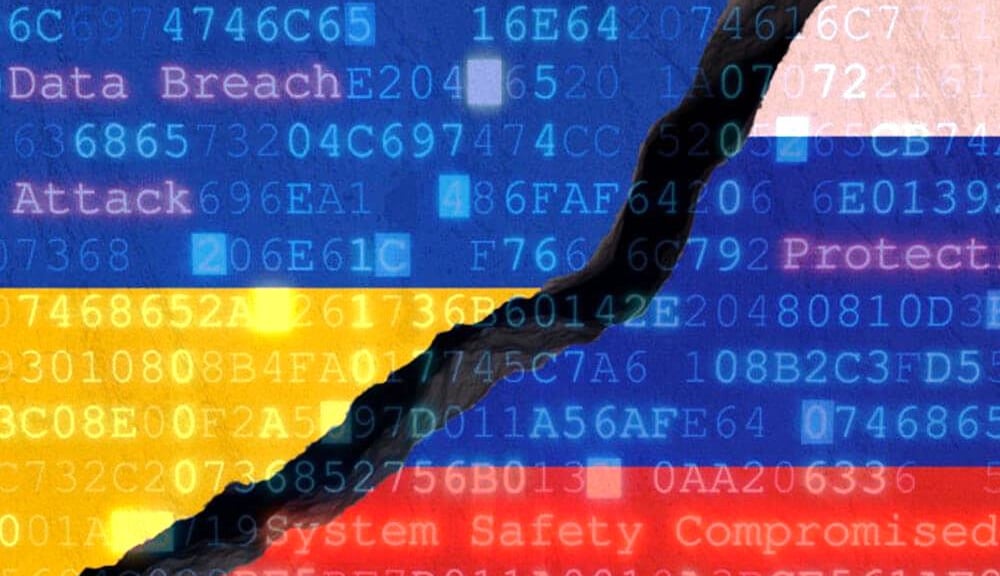Secure your Data with Inferno🔥, Use Code: INFERNO100
The Cyber Front: Ukraine-Russia Conflict and the Looming Threat of Nuclear Escalation
The Ukraine-Russia cyberwar has intensified with recent developments, as both nations deploy increasingly sophisticated cyberattacks targeting critical infrastructure and government operations. From ransomware and DDoS attacks to advanced persistent threats, the digital battlefield is playing a crucial role in the conflict. This article explores the evolving tactics on both sides, the role of misinformation, and the global implications of this high-stakes cyber warfare, highlighting the potential risks of escalation and the growing importance of cybersecurity in modern conflicts.
CYBER WARFAREDEVELOPMENT AND ECONOMIC THREATS
Phillemon Neluvhalani
9/15/20243 min read


The digital battlefield between Ukraine and Russia has taken a new turn, with both sides doubling down on their cyber tactics. In recent months, we’ve seen a spike in targeted cyberattacks, signaling that this war is as much about bits and bytes as it is about boots on the ground. These cyber strikes are hitting critical infrastructure, government systems, and everyday life, leaving both nations scrambling to keep up.
One of the most striking trends recently has been the surge in ransomware attacks, particularly on Ukrainian government institutions and essential services. These attacks aren’t just about locking files for ransom; they’re designed to disrupt the country's operations and stir chaos. On top of that, Distributed Denial of Service (DDoS) attacks are being used to flood websites, bringing down everything from government portals to public utilities. The goal? To paralyze Ukraine’s ability to function in the middle of a war.
But Ukraine isn’t taking it lying down. They’ve hardened their defenses significantly, often with the help of Western allies. By sharing cybersecurity expertise and intelligence, Ukraine has been able to counter many of these cyber threats, though the sheer volume and sophistication of attacks remain a serious challenge.
On the flip side, Russia has also been evolving its cyber game. In response to Ukraine’s growing defenses, Russian hackers—many of them state-sponsored—have started deploying more advanced tools. Recent reports show an uptick in Advanced Persistent Threats (APTs), where hackers use stealthy, long-term attacks to infiltrate Ukrainian networks. These APT groups are constantly developing new ways to bypass defenses, from phishing campaigns to exploiting software vulnerabilities.
Cyber Warfare’s Growing Role in Modern Conflicts
Cyber warfare isn’t just a side note in the Ukraine-Russia conflict—it’s become a core part of the strategy. We’re seeing firsthand how cyberattacks can cripple a nation’s infrastructure, disrupt communications, and leak sensitive military information, putting national security at risk without a single shot being fired.
What’s even more concerning is the use of information warfare. Russia has been leveraging cyber tools to spread misinformation and propaganda, trying to sway public opinion and lower morale. Through social media, they’ve been able to manipulate narratives, making it harder for the truth to surface. And in a war like this, controlling the narrative is half the battle.
It’s not just about digital attacks on infrastructure, though. The bigger picture is how cyber warfare has reshaped military and defense strategies globally. The Ukraine-Russia conflict is showing the world just how important cybersecurity is—not only for defense but for preventing wide-scale disruption in a time of war. International alliances, like NATO, are playing a crucial role in this, pooling resources and intelligence to build a collective defense against these digital threats.
Cyber Warfare Escalation: How It Could Lead to Something Worse
One of the most unsettling aspects of this cyberwar is the real risk of escalation—possibly even to nuclear conflict. Both Ukraine and Russia have powerful military capabilities, and cyberattacks on critical infrastructure could push things in a dangerous direction.
Take, for instance, a large-scale cyber strike on Ukraine’s power grid or water supply. The damage could be catastrophic and lead to retaliatory military actions, which could easily spiral out of control. When you add nuclear capabilities into the mix, the stakes rise dramatically. What might start as a cyber skirmish could be misinterpreted as a full-blown attack, leading to decisions that no one can take back.
Misinformation only adds fuel to this fire. In the fog of war, manipulated narratives or false information could lead to rash decisions, with each side making assumptions about the other’s intentions. And with the line between cyberattacks and traditional warfare becoming increasingly blurred, the risk of miscalculation is higher than ever.
Global Reactions and the Future of Cyber Warfare
This conflict has shown the world just how far-reaching the impacts of cyberwar can be. Countries are waking up to the reality that they need to strengthen their defenses—not just in terms of military might, but in their cybersecurity infrastructure. The sanctions that many nations have imposed on Russia, especially those targeting tech and finance sectors, aim to weaken their ability to wage both physical and cyber warfare.
At the same time, nations are rallying around Ukraine, offering not just military aid but also cybersecurity support. This has reinforced alliances, particularly among NATO members, and sent a clear message that cyber aggression will not be tolerated.
Looking forward, the Ukraine-Russia cyberwar is a stark reminder that the future of conflict is digital. The strategies and technologies developed in this war will likely shape global military policies for years to come. As cyber threats evolve, so must the tactics used to counter them. For now, the world watches and learns from the digital front lines, where the battle for security and sovereignty plays out one cyber attack at a time.


